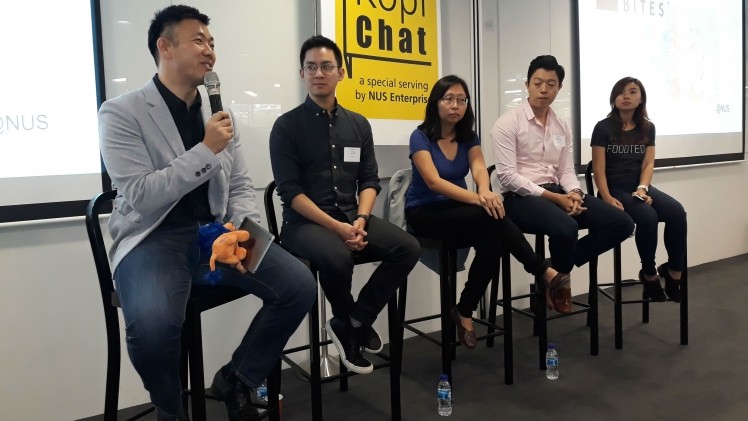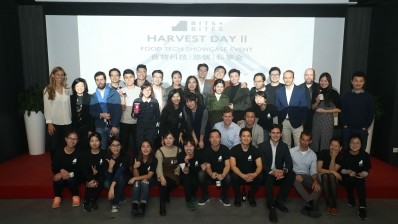Five factors for food start-ups to focus on for APAC success

A recent discussion held in Singapore brought together food accelerators, venture capitalists, entrepreneurs and academics to debate this issue.
Here are our top five takeaways from the event, which was organised by Shanghai-based accelerator and venture capital outfit BitsxBites.
1) Don't mind the gap, find it
According to Eric Sun, accelerator programme director of BitsxBites, it is fundamental that start-ups identify a niche or a gap in the market, where they can solve a problem or meet a clear consumer need.
"Start-ups need to ask: How am I going to solve the (industry) problem, and emerge the winner (amongst the competition)," he said.
"You need to ask yourself what you're bringing to the table. What does the market really need? If it answers a need, a lot of companies will want to invest. There are a lot of gaps in industry."
A good example of this is Alchemy Food Tech, founded by National University of Singapore (NUS) alumnus Verleen Goh.
Its novel product, Diabetec, lowers the GI of refined carbohydrates, such as white rice, bread and noodles, without changing the their taste, texture or colour. The firm is now working with manufacturers to implement the patent-pending composition into their products.
2) Avoid spin, attain evidence
According to Gerald Chia, head of investments and portfolio management at New Protein Capital, many start-ups approach him with ideas that are far from new.
He advised against simply giving "an Asian spin" on something already existing in foreign markets, arguing it would be unlikely to interest investors.
"Venture capitalists want to see if your product will make money. You also need robust scientific studies to back your product," he stressed.
Ricky Lin, founder of biotech start-up Life3, agreed, saying strong evidence-based product efficacy is crucial.
"If you are serious about functional food, for example, you need to differentiate your product and also validate your claims on its properties," he said.
"For Life3, we worked with food-tech companies, clinicians, etc. on our vegetable protein product and to verify our product claims. In Singapore, there are a lot of good resources and people who can help you get what you need."
3) Know where the money is
Investors are increasingly keen to invest in food start-ups, but they are more likely to lean towards products with added health benefits, or that tap into sustainability and food security trends.
Goh said this followed the recent rise of 'unicorn' food-tech start-ups such as Impossible Foods and Hampton Creek, which offer alternative protein, meat and dairy substitutes.
Chia also assured attendees there is money in agri-tech and food-tech, saying alternative protein is an area of high interest for new investment.
Further down the food chain, he highlighted the need for a sustainable and cost-effective replacement for fishmeal, for which he says the search was still ongoing.
4) Location, location, location
Despite the globalised nature of the food industry, picking the right location to base a start-up venture is critical.
The panellists were united in their view of Singapore as a prime destination. Lin said the city state is the "future of food-tech start-ups", with much of the required infrastructure already in place.
These include the Food Innovation Cluster (FIC), a key initiative under the government's Food Manufacturing Industry Transformation Map to develop Singapore into a leading food and nutrition hub in Asia by 2025.
This makes it conducive for different agencies to come together to share knowledge and resources, and to encourage growth, added Lin, who also referred to the availability of grant opportunities.
Goh cited those from the Technology Enterprise Commercialisation Scheme (TECS) and StartupSG as prime examples.
5) What's the story?
While attendees also heard about the importance of food safety, shelf life, packaging and the use technologies such as block chain, the final fundamental factor for a food start-up's success is having a great story to tell.
Sun said the story behind a start-up is of critical importance to investors, who want to know why a venture is worthy of funding.
He said China was full of start-ups, but many lacked a compelling narrative that could be successfully marketed.
"You have to craft the right story and communicate the value proposition well," he advised.
















